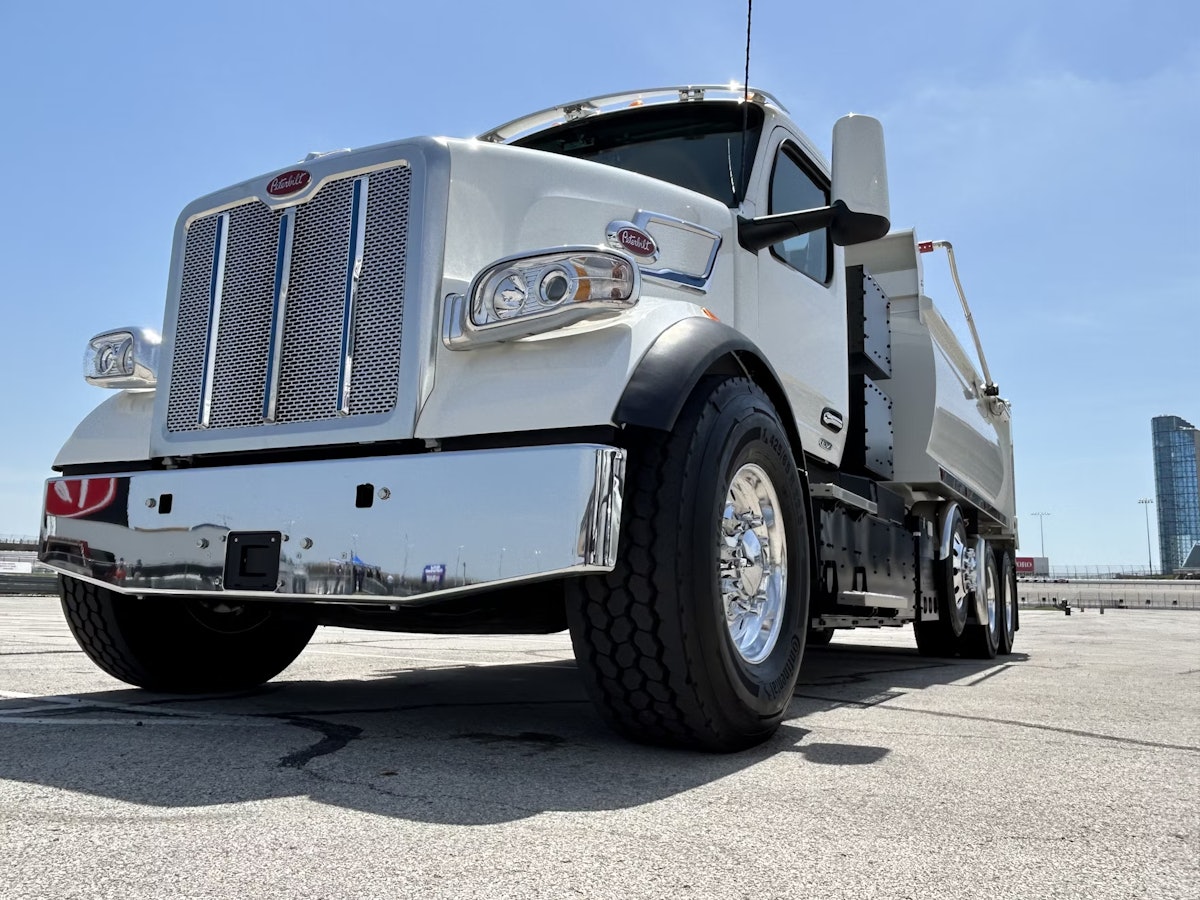Now Reading: Peterbilt Launching First Electric Heavy-Duty Vocational Truck, the Model 567EV
-
01
Peterbilt Launching First Electric Heavy-Duty Vocational Truck, the Model 567EV
Peterbilt Launching First Electric Heavy-Duty Vocational Truck, the Model 567EV

Peterbilt’s Model 567 is a common sight on job sites, much like a DeWalt cordless drill, and soon they will share another connection. Peterbilt is targeting the work truck industry with its latest battery electric model, bringing zero emissions technology to the sector where it has been most successful: short hauls that return to a base without relying on public charging infrastructure.
The new Model 567EV is specifically designed for vocational purposes such as dump trucks, utility trucks, and equipment haulers, marking the first Battery Electric Vehicle (BEV) to enter the vocational market. Peterbilt, which currently holds over 21% of the market share in this segment, sees a significant opportunity in the zero emissions vocational sector.
Erik Johnson, Peterbilt’s Assistant General Manager of Sales and Marketing, expressed confidence in the company’s foray into the zero emissions vocational market. The new Model 567EV has already attracted interest from customers in utility and municipal services, dump fleets, and refuse fleets that are considering adding an electric roll-on/roll-off to their operations.
The Model 567EV utilizes the batteries onboard the truck via the ePTO, offering either 25 kW or 150 kW. According to Patrick Wallace, Peterbilt’s electric vehicle marketing manager, the integration of the ePTO system is seamless, allowing for efficient energy usage.
Vocational applications, where range is typically limited and idle periods are common, present an ideal opportunity for electrification to shine. Jake White, Peterbilt’s Director of Product Marketing, highlighted the advantages of battery electric trucks in applications that involve short runs, emphasizing the Total Cost of Ownership (TCO) benefits compared to diesel trucks.
The electric 567 is suitable for a wide range of applications, with wheelbases of 190 inches or longer and a gross combined weight rating of up to 82,000 lbs. The truck features a new Paccar ePowertrain that has been developed over five years, offering enhanced performance and flexibility in integration with existing systems.
The Model 567EV comes with lithium iron phosphate (LFP) batteries known for their extended lifespan and performance. The truck is equipped with advanced features such as thermal management for batteries, electronic accessories, and enhanced charging capabilities up to 350 kW.
Overall, Peterbilt’s entry into the zero emissions vocational market with the Model 567EV reflects the company’s commitment to sustainable transportation solutions and meeting the evolving needs of customers in the work truck industry.





